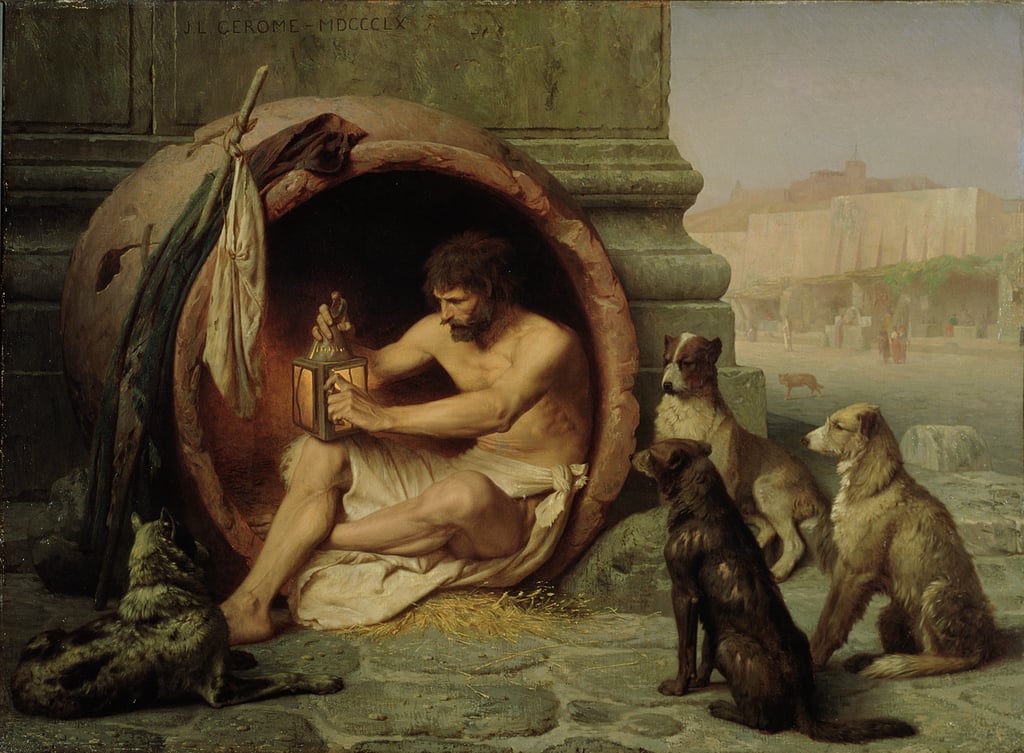Permanent Location:
- The Walters Art Museum, Mount Vernon-Belvedere, Baltimore, Maryland, United States
- In the museum: Centre Street, First Floor, Selections from the 19th-Century European and North American Collection
- Date: 1860
Diogenes, 1860 by Jean-Léon Gérôme (French, 1824–1904). Oil on canvas. Acquired by William T. Walters, 1872.
The Subject:
The Greek philosopher Diogenes (404-323 BC) is seated in his abode, the earthenware tub, in the Metroon, Athens, lighting the lamp in daylight with which he was to search for an honest man. His companions were dogs that also served as emblems of his "Cynic" (Greek: "kynikos," dog-like) philosophy, which emphasized an austere existence.
Three years after this painting was first exhibited, Gérôme was appointed a professor of painting at the École des Beaux-Arts where he would instruct many students, both French and foreign.
While Diogenes was certainly a misanthrope who ridiculed and condemned human beings, he did not think human nature was corrupt and to blame for the depravity which permeates mankind.
Instead, he believed that human beings are by nature good and virtuous, but that they are corrupted by the artificial social norms, customs, practices, and values which are inculcated into them via the process of socialization. These artificial social constraints are conforming forces which turn potentially strong and independent individuals into obedient sheep.
In fact, Diogenes made it his life’s mission to debase, or destroy, the artificial social norms, practices, and values which weaken individuals. To do this, he attempted to display, through his actions, how ridiculous and arbitrary they were.
Once, when the city of Corinth heard news that they were soon to be under attack, the citizens went into a panic and began preparing for the coming battle. Diogenes, oblivious as to what all the fuss was about, began rolling his pithos, or tub, up and down a hill. Someone asked why he was performing such a pointless task, to which he replied:
“Just to make myself look as busy as the rest of you.”
Diogenes is still highly regarded in the present day for his commitment to truth and living according to his beliefs. He is often credited with the first use of the word “cosmopolitan” when he stated: “I am a citizen of the world (cosmopolites).”
Inspiration and Notable Sources:
- Jean-Léon Gérôme's Bio on the Getty's website
- Diogenes of Sinope on World History Encyclopedia
- More about the painting on the website of the The Walters Art Museum
- Diogenes of Sinope and the Modern Cynics
- Diogenes of Sinope Quotes such as:
“As a matter of self-preservation, a man needs good friends or ardent enemies, for the former instruct him and the latter take him to task.”
– Diogenes of Sinope

No Comments.